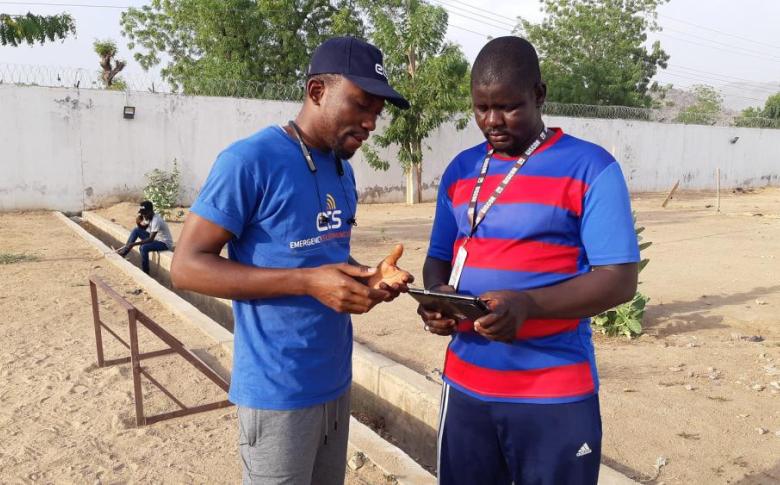Serving responders amid COVID-19: Caleb Anwara

Early April and the Red Roof humanitarian hub – home to ETS staff, as well as all responders from United Nations (UN) agencies and humanitarian organizations in Maiduguri – seemed quieter than usual. The usual bustle and the numerous activities have now quietened as most staff are working from home. It is a challenging time for the ETS team as they face an invisible yet global challenge: COVID-19. With only critical staff reporting to the office, ETS personnel share their thoughts on serving the humanitarian community during this pandemic, but this time, remotely.
Caleb Anwara packed his IT equipment as he was prepared to go on mission to Gwoza in Borno State in mid-March.
It was the same time as Nigeria started to see a staggering number of COVID-19 cases and the country started to implement measures to curb the spread of the virus.
“As a human being, there is a fear in me because I know the virus is deadly. But providing assistance for humanitarians in the North-East overrides the fear. This is the time when humanitarians are tested, whether you are there for the people,” says Caleb.
At a time when most people were working from home, Caleb was out in the field conducting a troubleshooting simulation, as well as carrying out maintenance on equipment to ensure Internet connectivity was fully operational for humanitarians who depend on it.
He also trained the humanitarian hub manager on utilizing the audioconferencing kit to enable communications between humanitarians at all of the hubs to improve their coordination on the ground.
Caleb praised the UN for implementing a number of precautionary measures to minimise the chance of contracting the COVID-19. “Providing humanitarian assistance means that you have to deal with difficult situations and environments. This is the kind of situation that we have to fight – it doesn't deter us to provide necessary assistance,” he firmly added.
Caleb acknowledges that the ETS plays a key role in providing security communications and data connectivity to responders as they need regular communication in times of crisis like COVID-19, while continuing to assist affected populations.
The ETS remains committed to providing services for humanitarians during the pandemic. "I've been in the field where ETS is the only Internet provider. It wouldn’t be nice to deny this service or [to not be able to fix] any issues that hamper people to communicate [with each other]. That drives me to give my best as much as I’m able to.”
“My commitment is, to the extent where it is safe, I’m always willing to provide whatever it is, physically or remotely, to provide support to humanitarians,” he adds.